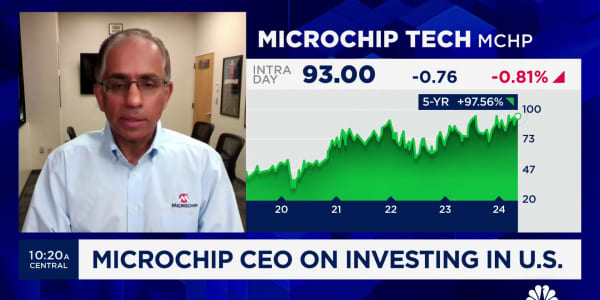The battle for Congress is on and depending on the outcome—the future of health care reform is hanging in the balance. The economics of reform are already being felt with rising insurance premiums and doctors denying to take on additional patients.
I decided to ask John Goodman, President and CEO of the National Center for Policy Analysis and Alan Miller, Chairman and CEO of United Health Services what impact the midterm elections could have on health care reform if there is a change in leadership.
JG: A change in leadership will have a significant impact on health reform. Most incumbents who voted for the Affordable Care Act have shied away from the health reform issue during the campaign. Current leadership in the House and Senate has staunchly supported government-run health care. If GOP and conservative Democrat gains are sufficient to win control of either or both Houses of Congress, the impact would be substantial.
Polls show the public does support health reform, just not the current version of it. However, any efforts to repeal would be met would certainly be met with a veto from the President.
The reasons why are rooted in the winners and losers under the Affordable Care Act, as passed last Spring. The big winners are most (but certainly not all) of the 32 million who will eventually become insured plus some people with high health care costs. A generous estimate could put that at 50 million. The other 250 million Americans are going to lose more than they gain. For every winner, there will be five losers.
The next round of health care reform should tackle the most important problems of ordinary Americans. I recommend making health insurance portable, affordable and fair.
AM: I think we'll likely see some of the provisions of the healthcare reform bill revisited by the new Congress, should the Republicans win back the house (and narrow the margin in the senate). I don't know that they can "reverse" healthcare, and I'm not sure that's a good idea —there are some good provisions in the bill, such as increased portability and the elimination of pre-existing conditions. I'd like to see, however, the new Congress tackle medical malpractice reform. Unfortunately, it wasn't included in the original bill, yet it could lead to hundreds of billions of dollars in savings and costs reductions over the long term. I think it's the best way to control costs.
LL: Can the GOP reverse health care if they take over in the balance of power?
JG: The likely initial impact will be to delay and perhaps even defund implementation. All House Members face re-election every two years, but only one-third of the Senate does. So absent a marked change by some longer-term Democrat Senators, it would be difficult to override a veto before 2012.
The opportunity would exist, however slight it might be, for a strong majority of GOP and more conservative Democrat Senators to repeal or replace problematic provisions of the law. In such a case of strong Congressional support, President Obama might actually allow the bill containing those reforms to pass into law without vetoing them.
LL: What kind of economic impact can this have?
JG: If the Senate (and House) can delay implementation of some of the more egregious provisions, costs for the employer mandate for example, will be far lower. If the GOP can delay creation of the Exchanges with associated subsidies, taxpayers will bear far fewer costs. The CBO recently estimated the PPACA (Patient Protection and Affordable Care Act) would cause the labor market to contract by nearly 700,000 workers. In addition, the immense costs will cause many businesses to curtail hiring. So what’s the bottom line?
We have calculated the hourly cost of the essential benefit package for workers at $2.28 for individual coverage and $5.89 for a family. Add to the analysis that the federal minimum wage will be $7.25 within four years.
This suggests it will cost business owners $13.14 per hour to employ moderate-income workers with a family. Because the value added to production by many of the least skilled workers does not equal or exceed that hourly wage, employers will not hire them. Millions of workers will be priced out of the labor market, creating a huge labor market upheaval and high unemployment, looking indefinitely into the future.
LL: One of the biggest problems involving health care reform is cost. Ron Baron who I recently sat down with is one of many who disapprove that the President did not try and cut costs on this, rather just get everyone covered and then think of ways to pay for it. How can the costs of this reform be knocked down?
JG: First, the cost estimates are fiction. As the new law stands, it will be paid for with $523 billion in Medicare cuts. Not only is it unlikely these cuts will ever happen, but if implemented they would severely restrict seniors’ access to quality health care. Medicare chief Actuary Richard Foster has warned about this on several occasions, most recently in his alternative addendum to the annual report by the Public Trustees of Social Security and Medicare.
By far the most expensive costs are subsidies for the Exchange and for the cost of expanding Medicaid eligibility. The government is essentially telling Americans that they must have comprehensive coverage, then providing a generous subsidy in the Exchange for those who cannot obtain coverage through their employer (CBO estimates 25 million people in all – in reality it will be far higher). Of the 32 to 34 million that are estimated to gain coverage, half will be covered by private health insurance while the remaining half will have coverage through Medicaid.
One solution: the subsidies should be the same for all, regardless of income or how coverage is obtained. People should be allowed to purchase the coverage that meets their needs. For example, two million people currently have low-cost limited benefit plans (mini-meds) that will be phased out under the ACA.
Another solution is to roll back expansion of Medicaid. Past studies have shown that from 50% to 75% of the newly enrolled will be people who have dropped private coverage. Also, we would should create a competitive national market for insurance by allowing people to buy across states lines.
AM: I agree that there wasn't enough effort put on controlling costs. I'm a big believer that medical malpractice reform, and tort reform in general, would be the quickest, surest way, to drive down — or at least contain — costs. It could save hundreds of billions of dollars, while making some types of coverage policies more affordable. I'm disappointed that this was given little attention in the original bill, but confident that it will be revisited by the new Congress.
LL: I have heard from nurses and physicians they are doing more paperwork now more than ever in prevention of lawsuits than ever before. Do you think we'll see tort reform anytime soon?
JG: The cost of defensive medicine is one of the reasons that health care is so expensive in the United States. The high cost of medical mistakes was not included in the PPACA because the Democrats didn’t want to take on the trial lawyers (remember Howard Dean?). So it will be difficult to get President Obama to sign anything that addresses this issue.
AM: I think the new Congress has the best chance in a long, long time to begin a national conversation on tort reform that will lead to real change. It's one of the more pressing issues that we face in the healthcare sector. Though it's been dealt with on a state by state basis in varying ways, for lots of reasons, tort reform has been overlooked at the Federal level. In the end, it can save hundreds of billions of dollars over the long term and make access to coverage more affordable.
LL: Dick Armey told me he is suing to get OUT of Medicare. He doesn't want it and he is forced to take it because of his age.
Shouldn't an individual have the right to chose to participate? Medicaid and Medicare have gone from offering health care coverage to those who need it to health care to all— even if they have better plans. Isn't this something that should be addressed?
JG: The Medicare program is so large that there is no longer a health insurance market for seniors who don’t want Medicare. A senior willing to pay out-of-pocket will find doctors often cannot treat them and treat Medicare at the same time. This limits the ability of a senior to opt out of Medicare — even if they could afford to. One result of the new health reform law is that employers that offer retiree coverage are dropping their plans. And, yes, it should be addressed. Younger people should be allowed to set money aside during their working lives to pay for health care after retirement.
LL: How much could be saved if Medicaid and Medicare was made optional?
JG:In the 2010 Trustees Report the unfunded liability for Medicare was $37 trillion but, as mentioned, the chief actuary of Social Security and Medicare, Richard Foster, disagreed with that figure. The more likely figure is the one used last year which was $89 trillion. Within a generation the costs could be manageable with a fully funded system.
LL: Will the new Congress have the political will to tackle Medicaid and Medicare?
JG: At some point Congress will have no choice — the combined cost of the programs will crowd out all other forms of government services. The key will be whether Congress is willing to take on the tough issues while there is still time to do something about it. It is more likely that states will have to scale back Medicaid — many are already trimming benefits, cutting reimbursements and looking at cutting who is eligible.
The only thing Congress has done with Medicare was create the sustainable growth rate formula — which Congress periodically suspends knowing cuts in physician fees would reduce access to care. The only way health care experts and advocates know to reduce spending is to squeeze the providers. That does not lower costs — it merely shifts costs.
Furthermore, many seniors and Medicaid enrollees find it hard to get a doctor who will treat them for such low reimbursements. And in fact, more and more doctors are refusing to do so.
AM: I happen to think Medicare is fairly well run, and people like the program. Can it be improved on — of course. All programs can be. But I don't think the program is in need of dramatic overhaul.
LL: I know some practices that are not accepting anymore Medicaid and Medicare patients because they are not getting paid.
JG: Medicare compensates doctors only about 81% of what private insurers pay. For hospitals it’s even less — 71% of what private insures pay.
Medicaid, on average, only reimburses about 59% of private insurers, and in some states physician fees can run nearly one-quarter of what private insurers pay. It’s no wonder why doctors are loath to see Medicaid patients and many physicians are dropping or considering dropping Medicare. The 2010 Trustees report assumes Medicare fees will fall below Medicaid rates by 2019 and continue falling behind private payment rates in future years.
LL: What should be done in regards to Medicaid and Medicare? The system is clearly broken. Just how much longer can these programs survive this way?
JG: Certainly both programs would benefit if they were turned into a voucher-type of system where enrollees have greater control of their health care dollars. Medicare especially would benefit from giving enrollees the ability to save for future health care needs.
I also believe Medicare, in particular, needs to change the way doctors and hospitals are paid. Doctors and patients are currently trapped by government-imposed payment rates. Under Medicare doctors are not allowed to be reimbursed when they cut office visit costs by communicating with their patients by phone or e-mail.
Medicare pays by task—there is a list of about 7,500—but doctors do not get paid to advise patients on how to lower their drug costs or how to comparison shop on the Web. In short, they get paid when people are sick. They are not paid to keep them healthy.
So long as total cost to the government does not rise and quality of care does not suffer, doctors should have the freedom to repackage and reprice their services. And payment should take into account the quality of the care that is delivered. Once physicians are liberated under Medicare, private insurers will follow.
__________________________________________________
Questions? Comments? Email us at
Follow on Twitter @ twitter.com/loriannlarocco
Follow NetNet on Twitter @ twitter.com/CNBCnetnet
Facebook us @
A Senior Talent Producer at CNBC, and author of "Thriving in the New Economy:Lessons from Today's Top Business Minds."






